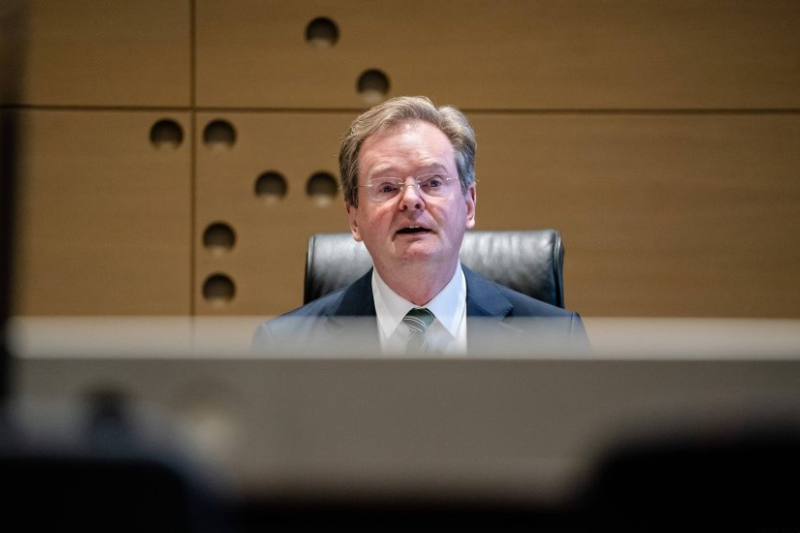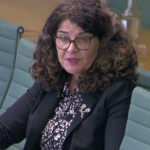
analyzing the divisions in the dutch cabinet a closer look at migration policy
On Thursday, as disagreements emerged within the coalition over how to carry out immigration policy, particularly a law regarding family reunion, the Dutch cabinet spoke for more than five hours. On this Friday, Dutch Prime Minister Mark Rutte suggested that things were looking up.
A coalition of several parties with divergent perspectives on immigration policy makes up the Dutch cabinet. Family reunification for war refugees and how to implement it are the main points of contention.
In general, the center-right/liberals People’s Party for Freedom and Democracy (VVD) of Prime Minister Mark Rutte and the center-right Christian Democratic Alliance (CDA) support a tougher stance on immigration, while the center-liberals Christian Union (CU) and the center-left Democrats’ 66 (D66) push for a more compassionate approach to the issue, in line with the international agreements to which the Netherlands is already a signatory.
According to Mark Rutte, discussions were taking place between the parties in order to come to a decision on immigration. After a five-hour discussion on the subject on Thursday, July 6, which lasted until 1:45 am, this was the first step in a series of steps.
Another member of the cabinet, Housing Minister Hugo de Jonge (CDA), stated that things appeared to have changed for the better. It’s a significant improvement over yesterday. Now, after five hours of conversation. You wouldn’t do that if you didn’t believe you could improve your relationship, he told Euroactiv.
Disputes over family reunions
However, Euractiv claimed that the Dutch cabinet was “on life support” before the talks, particularly as a result of its disagreements over family reunifications.
The VVD also wants people who want to bring family members over to wait at least two years before doing so. The VVD wants to cap the number of reunifications per month at 200. This idea is opposed by the CU and D66. The VVD declared in June that rather than making changes to this policy, they would be prepared to allow the entire cabinet to be dismissed.
Family reunification was the subject of a ruling by Dutch courts in February of this year. The Council of State, the nation’s highest administrative court, ruled that limiting the number of family reunions was against both Dutch and European legal requirements.
At the time, the Ministry of Justice estimated that 1,200 refugee families living in the Netherlands would benefit from the lifting of restrictions as a result of the decision. The Dutch government attempted to appeal lower courts’ decisions that also held that it was unlawful to restrict the right to family reunification for recognized refugees before the final decision.
Keep Reading
Crowded conditions in refugee shelters
The Dutch government claimed that the country’s surge in asylum seekers had rendered those reunions impossible, in part because there was a shortage of temporary housing.
There have been numerous reports of overcrowding in Dutch detention facilities since last summer, with some detainees reportedly camped out in tents. A judge deemed some of the accommodations provided to be “inadequate.”
The management of the situation was so challenging in August 2022 that the medical humanitarian organization Doctors without Borders (MSF) sent teams to some tent asylum seekers to assist the Dutch authorities.
The number of asylum requests in the Netherlands rose by a third to over 46,000 last year. According to predictions, more than 70,000 applications will be submitted this year, exceeding the number from 2015.
Those seeking asylum in the Netherlands
The Dutch government had suggested dividing asylum seekers into two categories to deal with a large number of refugees and asylum seekers. Those classified as “war refugees” would be considered to be in the country for a temporary amount of time and would enjoy fewer rights as the idea is that they could return to their home country once the war had ended. Those who have been persecuted for their political, religious, or sexual orientation would have full refugee rights, including the right to family reunification.
However, the CU and the D66 stated that they were unable to reach an agreement on the issue of family reunions because the CU, in particular, places a high value on family values. When asked about the family reunification cap put forth by Rutte’s party, CU leader Mirjam Bikker responded, “There are things you can ask us, and there are things you cannot ask of us.”
Despite some party leaders’ more upbeat comments, the Dutch public broadcaster NOS ran a headline that said, “The fall of the cabinet does not seem far away,” and claimed that Rutte and his coalition partners were “on a collision course.” The management of immigration would be one of the key campaign issues for politicians if the cabinet were to fail and new elections were to be held.









